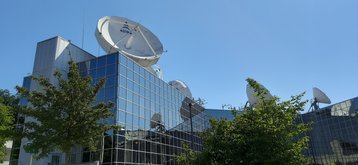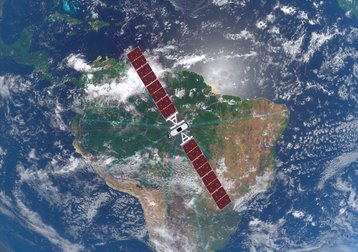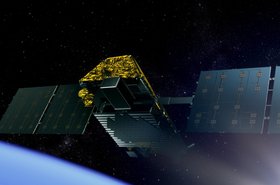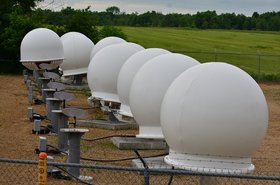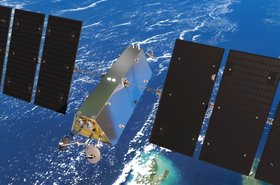SES’ in-orbit O3b mPower satellites are facing power issues that will shorten the machines’ lifespans. The launch of the new satellite broadband network will be delayed to fix the issues in upcoming units, and two more satellites are being launched.
SES had planned to launch the new medium Earth orbit (MEO) network later this year, but said in August some of the launched satellites were facing electrical issues.
The company said it has been seeing more an increased number of sporadic power module switch-offs, including a few “non-recoverable events," but didn't give details.
SES and the satellite manufacturer Boeing have identified the causes and mitigated the faults, but the satellites will have an operational life and capacity “significantly lower” than previously expected.
“SES and Boeing plan to upgrade five of the remaining satellites (7-11) already under manufacture and add two additional satellites into the constellation,” the satellite company said. “The additional investment associated with this plan is expected to be fully covered within SES’s existing committed CapEx envelope, including supplier concessions.”
SES’ second generation MEO fleet, O3b mPower, was first announced in 2017, with the first Boeing-built BSS-702X satellites launched by SpaceX in December 2022. Four of the original 11 planned satellites are currently in orbit; each 1,700kg Ka-band unit can provide up to 5,000 beams per satellite, providing from 50Mbps up to 10Gbps.
SES plans to launch O3b mPower satellites 5 and 6 in early November 2023, and expects commercial services to begin early in Q2 2024. The service was previously set to go live by the end of 2023.
Ruy Pinto, interim CEO of SES, said in the company’s earnings announcement: “With this plan in place, we now expect the launch of the next two O3b mPOWER satellites in early November and can look forward to deploying customers and beginning commercial services from early Q2 2024.”
For the quarter, SES posted revenue of €507 million ($535m)in Q3 2023, up 3 percent year-on-year. Contract backlog at the of the quarter was €4.7 billion ($4.96bn).
SpaceNews notes Boeing recently disclosed $315 million of losses on a satellite contract to meet life cycle commitments for an undisclosed customer, with sources saying SES is this customer.
SES has said it may make an insurance claim in light of the issues, with Boeing possibly sharing the proceeds.
Boeing drops plans for LEO satellite network
Boeing has dropped plans to launch its own network of 5,000 V-band Low Earth Orbit (LEO) satellites.
First reported by AviationWeek, Boeing has dropped the plans for the satellite fleet, relinquished its license, and paid a $2.2 million forfeiture fee. The FCC officially rescinded Boeing’s license on Oct. 12.
“We arrived at strategic business decisions regarding our spectrum allocation,” Michelle Parker, vice president, Boeing Space Mission Systems, told the publication. “We informed the FCC of our decision last month and paid the associated license liability that had accrued.”
“For now, we are not immediately pursuing a V-band constellation,” she added. “Boeing continually evaluates its spectrum usage to align with business objectives and industry regulations. We’re prioritizing more immediate growth steps at this time.”
In November 2021, the FCC granted Boeing a license to operate a constellation of 147 V-band satellites. Boeing immediately requested permission to expand the network to more than 5,000 satellites. The company launched a test satellite in September 2022.
In other satellite news:
- Ovzon has been granted another six months by regulators to provide services from its debut satellite following a series of manufacturing and launch delays. In March, the company was granted a Bring Into Use (BIU) extension from February 2023 to December, but then said in July it had been forced to delay the launch of its Ovzon 3 broadband satellite from September 2023 to late 2023 or early 2024.
- Eutelsat’s 500Gbps VHTS broadband satellite has gone live. The satellite company announced €274 million ($289m) in revenue for Q3, down 10 percent year-on-year. The company said OneWeb, which recently closed its merger with Eutelsat, has a booking backlog of €600 million ($633m) ahead of its global launch.
- STC group is acquiring LEO satellite capacity from Neom subsidiary Tonomous, which has a joint venture with OneWeb.
- Reliance Jio recently demonstrated its satellite broadband service JioSpaceFiber. The service will be launched in partnership with SES using its O3b and O3b mPower satellites.
- Google spin-out Aalyria signed an MoU with HICO Investment Group, which invests in shipping and logistics companies. Under the agreement, Aalyria will deploy up to 200 of its 100Gpbs Tightbeam free space optic laser terminals aboard ships globally. Aalyria has also partnered with Airbus to research connecting aircraft with terrestrial networks via its technology.
- The US Space Force to issue a request for proposals in early 2024 for the Evolved Strategic Satellite Communications System (ESS) constellation. The $8 billion program aims to develop jam-resistant satellites for military use.

